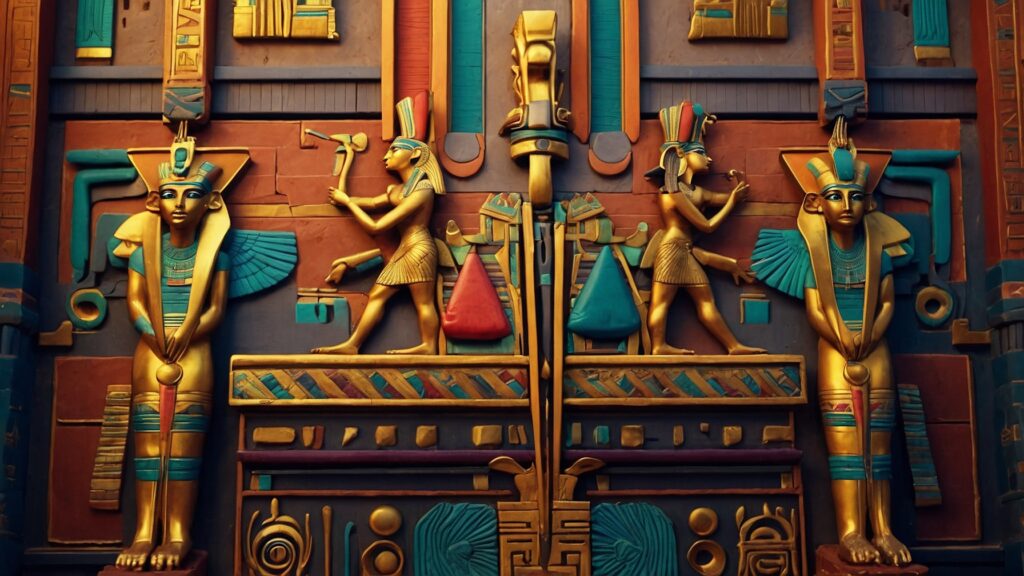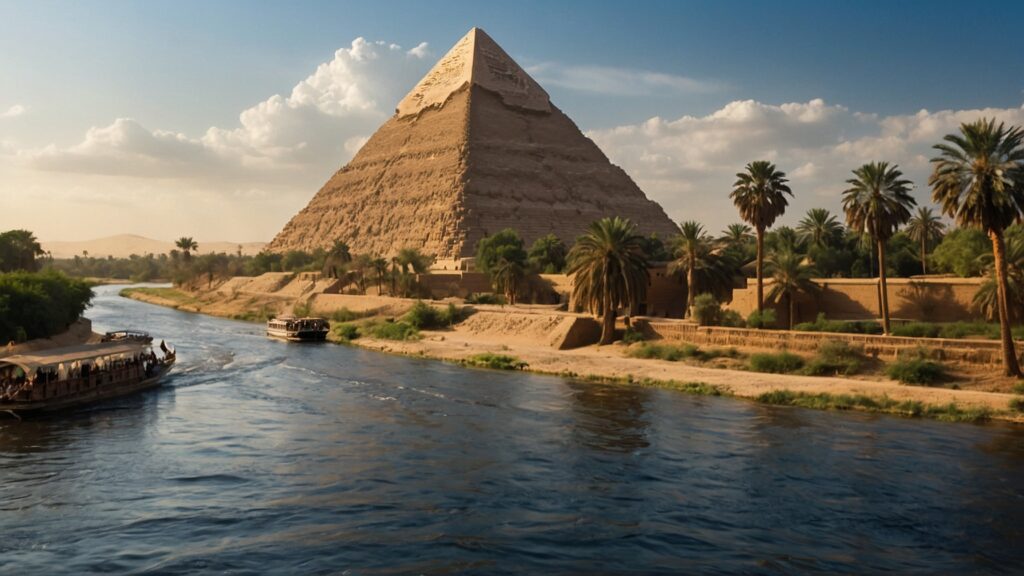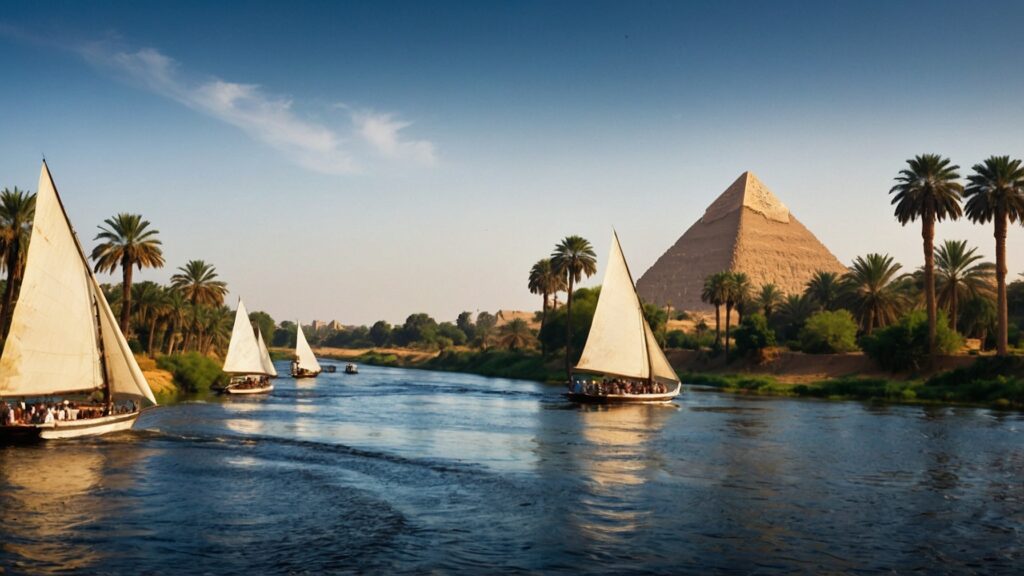Adverts
Dear reader…
Join us on the banks of the Nile River and delve into the fascinating depths of Ancient Egypt, a civilization rich in history, mythology and legacy.
Adverts
We will explore the pillars that supported this remarkable civilization – its beliefs, economy and magnificent buildings – and delve into the rich panoply of deities that populated the Egyptian world, each with their own unique history and meaning.
Life in Ancient Egypt: A Balance Between the Mundane and the Supernatural
Adverts

Ancient Egypt was a society deeply rooted in its religious beliefs and rituals, where everyday life and spiritual practices intertwined in intricate ways. The Egyptians believed in life after death and the need to prepare for the journey to the afterlife.
Economy and Constructions: The Pillars of Egyptian Greatness
The economy of Ancient Egypt was based primarily on agriculture, with the Nile River playing a central role in sustaining life and providing fertility to the land. The Egyptians mastered irrigation techniques and building systems of dikes and canals to control seasonal floods and ensure bountiful harvests.
The Gods of Egypt: A Gallery of Magnificent Deities

Egyptian mythology was rich in a myriad of deities, each with their specific powers and domains. Among the most prominent were:
- Ra (or Rê): The sun god, considered the creator of the world and the ruler of the sky. Represented with a solar disk over his head, Ra was worshiped as the lord of light and life.
- Isis: The goddess of motherhood, magic and healing, known for her devotion to her husband Osiris and son Horus. Isis was revered as the protector of women, the sick and the helpless.
- Osiris: The god of the underworld and resurrection, associated with fertility and renewal. Osiris was venerated as the judge of the dead and the symbol of eternity.
- Horus: The god of the heavens, represented as a falcon and associated with the protection of the pharaohs and divine justice. Horus was considered the guardian of the throne of Egypt and the defender of good against evil.
- Anubis: The god of the dead and embalming, responsible for guiding the souls of the deceased to the afterlife. With the head of a jackal, Anubis presided over funerary rituals and was invoked to protect tombs from looters.
In addition to these gods, there were a multitude of other deities, including Thoth, god of wisdom and writing; Hathor, goddess of love and joy; and Bastet, goddess of the house, fertility and cats.

Conclusion: The Enduring Heritage of Ancient Egypt
As we reflect on the richness and complexity of life in Ancient Egypt, we are reminded of the lasting influence this civilization has on the modern world. Its beliefs, economy, and monumental buildings continue to inspire awe and fascination, while its deities and myths resonate through the centuries.
May we continue to explore and learn from the legacy left by Ancient Egypt, finding inspiration in its quest to understand the divine and its reverence for life and death. May we honor the memory of the ancient Egyptians by preserving and celebrating their heritage for future generations.




